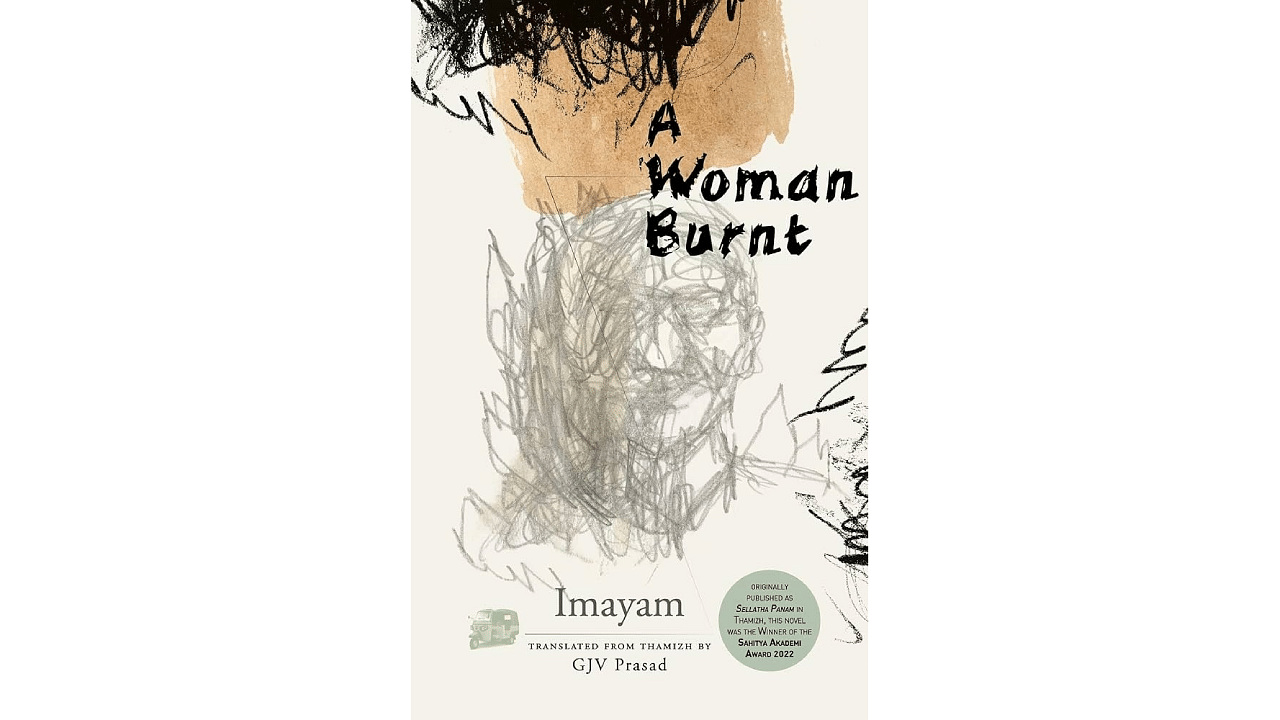
A Woman Burnt.
Credit: Special Arrangement
Imayam received the prestigious Sahitya Akademi award in 2020 for his novel Selladha Panam. He is known for his raw depictions of the brutalities of living in a patriarchal, caste-based society in the simplest words. The award-winning book about a woman burnt by the societal idea of honour, prestige and shame has been translated from Tamil by GJV Prasad as A Woman Burnt.
The novel opens with Revathi, an engineer from an upper-class family, wanting to marry an auto-driver, Ravi, living in Burma Bazaar which is set up by the refugees from Burma. Her family tries to convince her otherwise stating the inequalities of class, education, job, and caste in this match. Afraid of Revathi’s attempt to kill herself, the family agrees to a private wedding to avoid the shame of having given away their daughter to a ‘loafer’ like Ravi. The story that follows is set in the hospital where Revathi is treated as a burn victim, having immolated herself six years later.
Through the lucidity of prose, Imayam showcases the extent to which people can go to secure the future of their children. In the slowness of the events of three days spread across 300 pages, the story covers the nuances of waiting in the burn unit in the hospital in Pondicherry. It’s not merely a story about a woman suffering violence at the hands of her husband and setting herself on fire over a dispute. It’s about the fact that a bed is never empty in the ward.
In A Woman Burnt, Imayam and Prasad bring forth the fact that the social structures, including the institution of family, are the biggest cause of women immolating themselves. It is not the story of one Revathi but many women who face such atrocities daily and do not survive. The novel is an intriguing case of a privileged woman immolating herself based on her decision to marry. Misogyny, after all, surpasses class, caste, religion, education, privilege and opportunities.